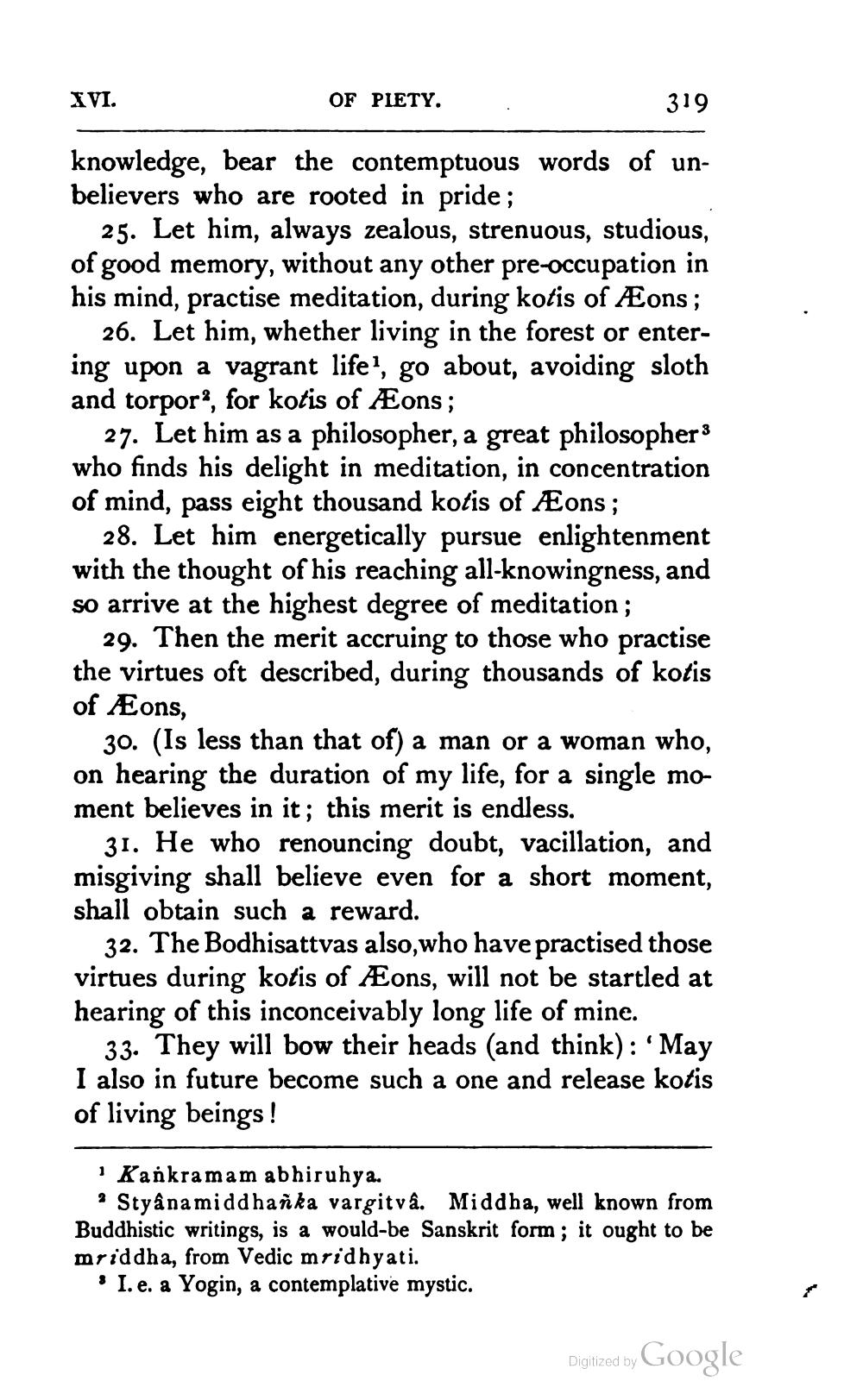________________
IVI.
OF PIETY.
319
knowledge, bear the contemptuous words of unbelievers who are rooted in pride;
25. Let him, always zealous, strenuous, studious, of good memory, without any other pre-occupation in his mind, practise meditation, during kotis of Æons;
26. Let him, whether living in the forest or entering upon a vagrant life?, go about, avoiding sloth and torpor?, for kotis of Æons;
27. Let him as a philosopher, a great philosopher 3 who finds his delight in meditation, in concentration of mind, pass eight thousand kotis of Æons;
28. Let him energetically pursue enlightenment with the thought of his reaching all-knowingness, and so arrive at the highest degree of meditation;
29. Then the merit accruing to those who practise the virtues oft described, during thousands of kotis of Æons,
30. (Is less than that of) a man or a woman who, on hearing the duration of my life, for a single moment believes in it; this merit is endless.
31. He who renouncing doubt, vacillation, and misgiving shall believe even for a short moment, shall obtain such a reward.
32. The Bodhisattvas also, who have practised those virtues during kotis of Æons, will not be startled at hearing of this inconceivably long life of mine.
33. They will bow their heads (and think): May I also in future become such a one and release kotis of living beings!
· Kaňkramam abhiruhya.
* Styânamiddhañka vargitva. Middha, well known from Buddhistic writings, is a would-be Sanskrit form; it ought to be mriddha, from Vedic mridhyati.
' I.e. a Yogin, a contemplative mystic.
Digitized by Google




